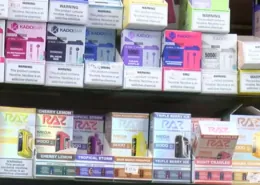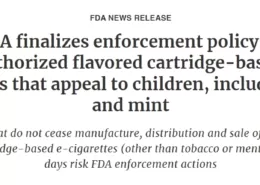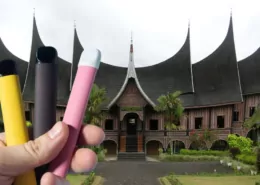Texas Passes Revised Vape Bill, Banning E-Liquids from China and “Hostile Nations”
The Texas State Legislature has passed a revised version of Senate Bill 2024 (SB 2024), which regulates the marketing, advertising, sale, and distribution of e-cigarette products in the state. After intense debate and opposition that nearly led to a ban on virtually all mass-market vaping products, lawmakers reached a compromise that specifically targets prefilled disposable vapes containing e-liquid manufactured in China or other designated “foreign adversary” nations, while leaving most refillable hardware and American-filled devices untouched.
The final version of the bill, which now awaits Governor Greg Abbott’s signature or veto, prohibits the sale of e-cigarette products if their e-liquid (or other consumable substance) is manufactured in, or marketed as being from, China or any country listed as a “foreign adversary” by the U.S. Secretary of Commerce. This effectively bans many popular prefilled disposable vapes imported directly from China. However, it allows the sale of Chinese-made vape devices if they are filled with American-made e-liquid, similar to a recent PMTA registry law passed in Tennessee.
Key changes in the revised SB 2024 also include:
- Upgraded Penalties: Violations related to e-cigarettes will now be classified as Class A misdemeanors, up from Class B, carrying potentially higher fines and longer jail sentences.
- Expanded Definition: The definition of “e-cigarette product” now explicitly includes consumable liquid solutions or other materials used in vaping devices, regardless of whether they contain nicotine. This brings nicotine-free e-liquids under regulatory scope.
- Prohibited Additives: The bill bans e-cigarette products containing or marketed as containing cannabinoids, alcohol, kratom, kava, psychedelic mushrooms, or tianeptine.
- Youth Marketing Restrictions: Existing prohibitions on designs appealing to minors (e.g., cartoons, food-like appearances, celebrity endorsements) and products disguised as everyday items are maintained and clarified.
The initial, more stringent House version of the bill would have banned any vaping product “wholly or partly manufactured in China,” including components like batteries or plastic casings, effectively outlawing nearly all vaping devices. This faced strong opposition from vape and tobacco companies, libertarian-leaning conservatives, and consumers, leading to the compromise focusing on the origin of the e-liquid. The law is expected to take effect on September 1, 2025, if signed.
- Is It Illegal to Vape or Smoke While Driving in Massachusetts? - August 5, 2025
- Austria Plans to Ban Disposable E-Cigarettes - August 5, 2025
- Vaping vs. THC Drinks: Which Cannabis Option Is Right for You? - August 4, 2025








